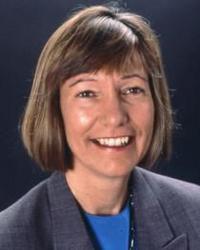Laurel Wilkening, a planetary scientist, former department head for the University of Arizona Lunar & Planetary Laboratory and the school’s first dean of sciences, died June 4, according to the LPL. She was 74 years old.
With a passion for science, meteorites and comets, Wilkening earned her Ph.D. from the University of California San Diego in 1970 where she was one of the first to examine a lunar rock from the Apollo 11 mission. Wilkening joined the faculty at UA’s LPL in 1973, where she taught geological chemistry. She went on to serve as the director and department head for LPL from 1981 to 1983.
Wilkening was a prominent member of the science community and took a special interest the U.S. space program, serving as vice chair of the Advisory Committee on the Future of the U.S. Space Programs, chair of the Space Policy Advisory Board as well as vice chair of the National Commission on Space under President Ronald Reagan.
While at the UA, she served as dean of the Graduate College, vice president for research, vice provost and acting dean of sciences.
Wilkening is also cited as being a key leader in the creation of the UA’s Department of Gender & Women’s Studies, along with fellow faculty member Myra Dinnerstein. She co-chaired the Women’s Studies Advocacy Council and helped spearhead a campaign for the development of the Women’s Plaza of Honor, which was built at the UA in 2005. With a gift of more than $100,000, Wilkening was also the top donor for the project.
Following her career at UA, Wilkening went on to become the first woman to serve as provost at the University of Washington in 1988, the first woman to be named chancellor at UC Irvine and the third female chancellor in University of California history in 1993.
After retiring in 1998, Wilkening moved back to Arizona where she continued to serve on boards for a variety of scientific, academic and environmental organizations. In 2013, an asteroid discovered by UA researchers in 1999 was officially named Wilkening to commemorate her work.
With a long list of accomplishments and a successful career, Wilkening said she was most proud of her work in academia, according to an interview for the NASA Johnson Space Center Oral History Project in 2001.
“What I feel really good about were being an advocate for undergraduate education wherever I went,” she said. “I really enjoy young people, and that’s what I miss most about not being in the university environment or not being in an educational environment. But I have a lot of hope for these next generations.”
Services were held Wednesday. Wilkening’s family asks that instead of flowers, donations can be made to the Alzheimer’s Association.




